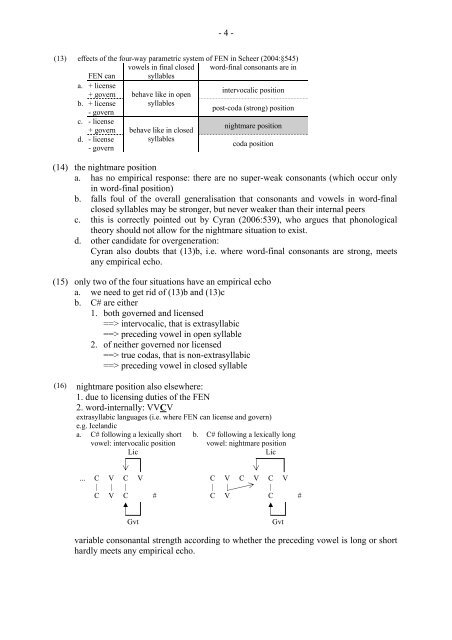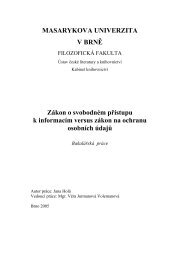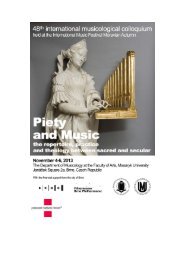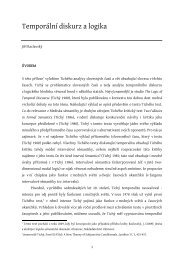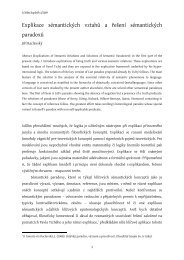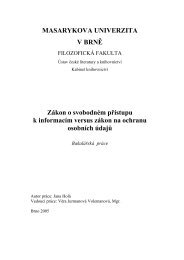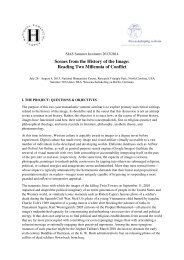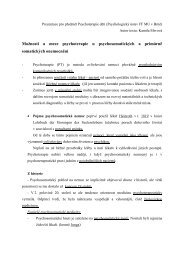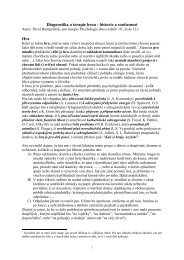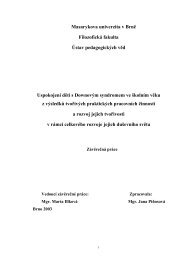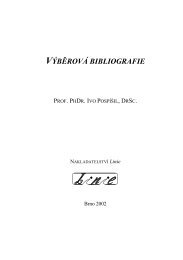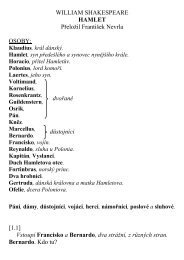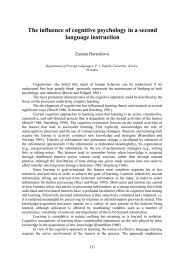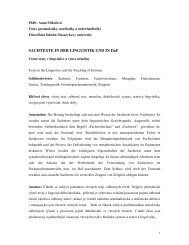The Coda Mirror v2 (but not exactly 2.0) - Masarykova univerzita
The Coda Mirror v2 (but not exactly 2.0) - Masarykova univerzita
The Coda Mirror v2 (but not exactly 2.0) - Masarykova univerzita
You also want an ePaper? Increase the reach of your titles
YUMPU automatically turns print PDFs into web optimized ePapers that Google loves.
- 4 -<br />
(13) effects of the four-way parametric system of FEN in Scheer (2004:§545)<br />
vowels in final closed word-final consonants are in<br />
FEN can syllables<br />
a. + license<br />
+ govern behave like in open<br />
intervocalic position<br />
b. + license syllables<br />
- govern<br />
post-coda (strong) position<br />
c. - license<br />
+ govern behave like in closed<br />
nightmare position<br />
d. - license syllables<br />
- govern<br />
coda position<br />
(14) the nightmare position<br />
a. has no empirical response: there are no super-weak consonants (which occur only<br />
in word-final position)<br />
b. falls foul of the overall generalisation that consonants and vowels in word-final<br />
closed syllables may be stronger, <strong>but</strong> never weaker than their internal peers<br />
c. this is correctly pointed out by Cyran (2006:539), who argues that phonological<br />
theory should <strong>not</strong> allow for the nightmare situation to exist.<br />
d. other candidate for overgeneration:<br />
Cyran also doubts that (13)b, i.e. where word-final consonants are strong, meets<br />
any empirical echo.<br />
(15) only two of the four situations have an empirical echo<br />
a. we need to get rid of (13)b and (13)c<br />
b. C# are either<br />
1. both governed and licensed<br />
==> intervocalic, that is extrasyllabic<br />
==> preceding vowel in open syllable<br />
2. of neither governed nor licensed<br />
==> true codas, that is non-extrasyllabic<br />
==> preceding vowel in closed syllable<br />
(16) nightmare position also elsewhere:<br />
1. due to licensing duties of the FEN<br />
2. word-internally: VVCV<br />
extrasyllabic languages (i.e. where FEN can license and govern)<br />
e.g. Icelandic<br />
a. C# following a lexically short<br />
vowel: intervocalic position<br />
b. C# following a lexically long<br />
vowel: nightmare position<br />
Lic<br />
Lic<br />
... C V C V C V C V C V<br />
| | | | | |<br />
C V C # C V C #<br />
Gvt<br />
Gvt<br />
variable consonantal strength according to whether the preceding vowel is long or short<br />
hardly meets any empirical echo.


